Why is Elon Musk all over US politics?
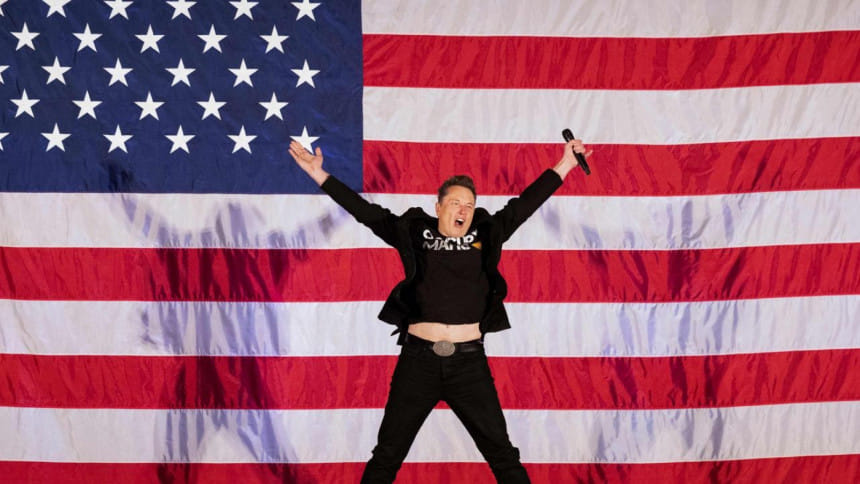
If there's one man who's been everywhere in the news since Donald Trump won the election, it's the business tycoon Elon Musk with a MAGA hat on his head, wearing the ecstatic smile of a man who just won his way into ultimate power. JD Vance, the actual vice president-elect, appears not nearly as close to Trump as Musk. As Trump watched himself win the elections in Mar-a-Lago, it was Musk sitting at his arm's length.
Musk helped Trump win the White House by not only pumping the campaign with reportedly $130 million but also dedicating his platform X as a MAGA megaphone. Offline, Musk funded advertising and get-out-the-vote operations, winning over conservative communities including even Amish groups in Pennsylvania. He's the richest man in the world, and with the upcoming Trump presidency, he's poised to win even more.
As the US president-elect announced his cabinet nominations, he made an expected announcement: Elon Musk and Vivek Ramaswamy to lead a new department called the Department of Government Efficiency. It is an unusual appointment—no high profile billionaire like Musk has been so overtly involved in political decision-making—but Trump had vowed, during his campaign, to make Musk the head of a new "government efficiency commission" with the power to recommend wide-ranging cuts at federal agencies and changes to federal rules. Likewise, Musk attended rallies and has cast his plans to optimise government efficiency in ways never seen before, reiterating his hopes of colonising Mars one day. The questions that most political analysts and the media seem to be grappling with, is how and why Elon Musk has emerged as the second main figure in US politics since the elections. For his progressive pariahs, the explanation is quite simple, Musk is there for what he does best: business.
But Elon Musk has a religious following of people who espouse his ideology, such as his belief that settling other planets is essential if humans are to avoid extinction through a large asteroid colliding with Earth. Many of his supporters, especially in the right-wing, have long believed in an extension of "manifest destiny" to outer space. Musk was perceived as a contrarian and odd foil to the political scene with the Democrats, but now with Donald Trump's popular vote win, it is more likely that his view regarding the regulatory state being not only a threat to his business but also humanity, resonates with the masses in the US.
And the fact of the matter is that Musk has always been a powerful backer; he historically backed the Democrats. His companies have had contracts with the federal government. SpaceX dictates NASA's rocket launch schedule, surpassing Boeing as a major contractor. The Department of Defence depends on him for satellites. The root cause of Musk's rise to Trump's biggest political ally lies in the fact that his backing of the incumbent president did not serve him. Musk voted for Joe Biden in 2020. Biden and Musk shared many policy objectives, specifically investment in green energy.
Then his takeover of Twitter in 2022 went through rounds of legal battles and Biden snubbed Tesla and backed unions. Biden even pushed for a bill to benefit EVs that are unionised, at the expense of those that are not: Tesla. At the time, in 2022, even The New York Times—which is generally critical of Musk—published a piece which criticised Biden antagonising Musk, stating, "Biden's beef with Musk seems to be a big missed opportunity—politically."
In December 2023, Federal Communications Commissions (FCC) had rejected $886 million in subsidies to Starlink, the satellite internet services that oversees SpaceX. Musk increasingly grew frustrated with the government, and wrote on X, that SpaceX would reach Mars sooner, "as long as it is not smothered by bureaucracy." Beyond SpaceX, Musk has also had no shortage of run-ins with the US federal government's regulatory agencies. Musk's plan to turn Tesla into a producer of driverless vehicles, Autopilot—which Trump is a proponent of—has run into major regulatory obstacles after it was found that the driver-assisted version of Autopilot caused hundreds of crashes and dozens of fatalities.
But now Musk has a way out of his own regulatory headaches as he can influence who's in charge of what in the government through DOGE, which is formed on that very premise of ending government bureaucracy; in other words, it helps Musk get what he wants, and get it faster. The fact that it's not a government department but "advisory group" allows Musk to dodge the federal code's primary conflict of interest law, which bans government employees from participating in government matters in which they have financial stakes. Elon Musk has said he plans to slash $2 trillion from the federal budget to make it more effective, but by law, he doesn't have the power to do that. But he can influence it as an "adviser." And he's been influencing quite a bit so far. On November 18, President-elect Trump nominated Brendan Carr—a Republican official who has been outspoken in his support of Elon Musk's businesses to lead the FCC—suggesting he could get the financial benefits. Besides, Musk's SpaceX already stands to gain billions from federal contracts in the coming years, and a new mission to Mars—which would be more easily approved under the Trump administration—would only make that federal spigot wider. When campaigning for Trump, Musk had posted on X, "Vote for @donaldtrump if you want humanity to make it to Mars."
Musk's bet on Trump has already benefited him. Tesla's share price has been up 50 percent since Trump's win. According to Tesla's SEC filings, Musk owns about 715 shares, so that itself, when combined with the rise in share price, would amount to $50 billion. So whether his poker move on Donald Trump works out in the long run or not, the vast sum he's gained already covers not only what he spent on the President-elect, but also the $44 billion that Musk and a group of investors poured into Twitter two years ago.
The world's richest man's side hustle as shadow vice president of the US is even extended to foreign policy as well. He has been a key player both in Ukraine's war against Russia; Starlink satellites operated by Musk's company SpaceX have provided internet connectivity to Ukraine's war effort. But Musk has feuded with Zelensky after he suggested a controversial peace proposal where Russia retain control over Crimea, which it illegally annexed in 2014. He also suggested that Ukraine drop its bid to join NATO. It's unclear how much political influence he would have on Trump's policies regarding Russia and Ukraine, but Musk also joined in a call Trump had with Turkey's Erdogan, and his general involvement in it all, raises suspicions.
Another report by The New York Times, right after Trump's win and before Musk's appointment to DOGE, revealed that the SpaceX CEO wanted Trump to hire employees from his rocket company as top government officials, including at the Department of Defense. DOGE keeps Musk an outsider by law, but judging by the nature of his relationship with Trump, he will have a lot of inner political influence in the upcoming days—more than say, a member of Congress—but the breadth and longevity of that remains to be seen. Trump and Musk are both unpredictable and eccentric by nature. Last week, friction unraveled between Musk and Boris Ephshteyn—a top adviser who's pushed for Cabinet picks that include the attorney general nominee, Matt Gaetz. Axios reported that the disagreement exploded at a dinner table at Mar-a-Lago and Musk accused Ephshteyn of leaking details of Trump's transition—including personnel picks—to the media.
Musk is now reportedly throwing his weight behind Trump's transition co-chair Howard Lutnick, the CEO of Wall Street firm Cantor Fitzgerald for Treasure secretary. On X, investor Kyle Bass wanted fund manager Scott Bessent for the role, to which he replied, that "Bessent is a business-as-usual-choice, whereas (Lutnick) will actually enact change." For context, Lutnick is more on board with Trump's tariff policies than Bessent, who's considered a moderate.
Trump's proposed tariffs on China, where Tesla has the biggest factory, are likely to benefit Musk more than hurt him. It would bar cheaper EVs from China making it into the US, and Tesla, which makes cars in the US for the domestic market, stands to gain from it. But foreign policy over China, could create tensions in the bromance between Musk and Trump. Musk makes cars in Shanghai for the Chinese domestic market too. By 2022, China accounted for about 22 percent of Tesla's total revenues. While many analysts believe that Musk's role in Trump's China policies would lead to an eventual fall-out, it could also be possible that Trump would want to keep Musk on the side—even if it means falling out with his security hawks in the foreign policy department—given the wealth of resources Musk has to denigrate an opponent.
The night Donald Trump won the election, he said, "We have to protect our geniuses. We don't have any of them." And Elon Musk is a genius because he managed to get his way at the end of the day.
Ramisa Rob is in-charge of Geopolitical Insights at The Daily Star.
Views expressed in this article are the author's own.
Follow The Daily Star Opinion on Facebook for the latest opinions, commentaries and analyses by experts and professionals. To contribute your article or letter to The Daily Star Opinion, see our guidelines for submission.

 For all latest news, follow The Daily Star's Google News channel.
For all latest news, follow The Daily Star's Google News channel. 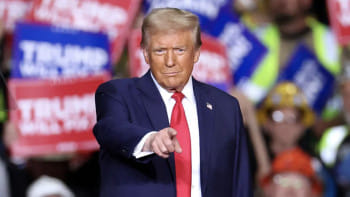
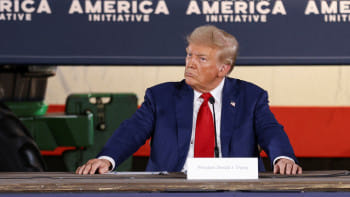





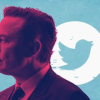
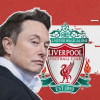

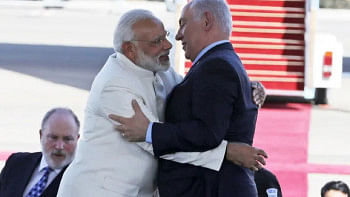
Comments